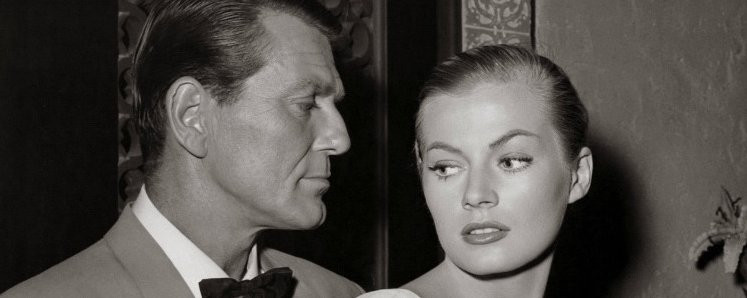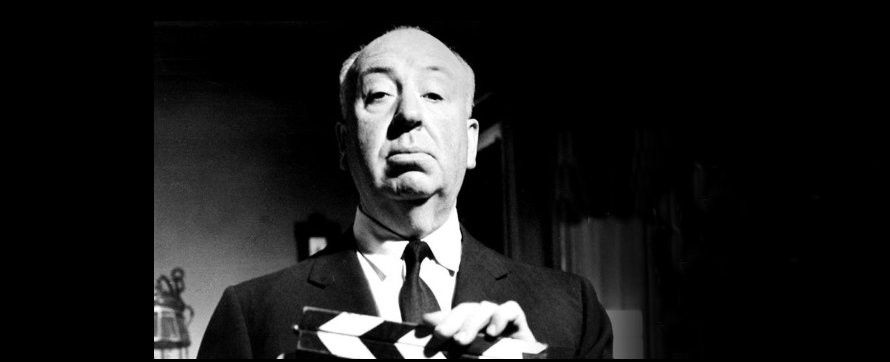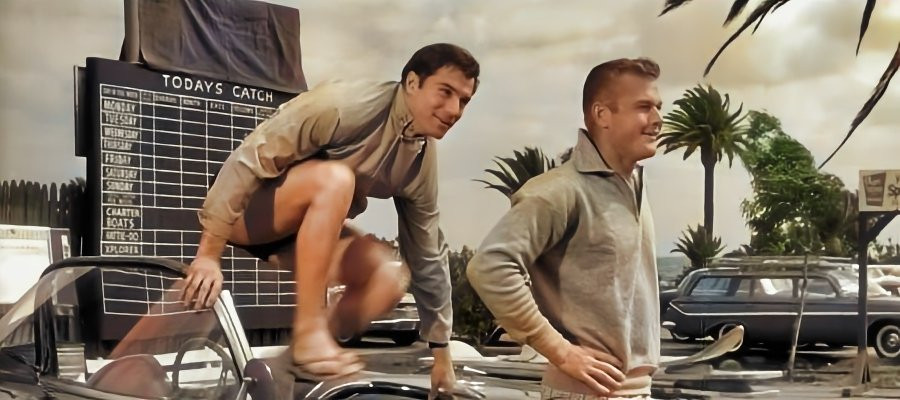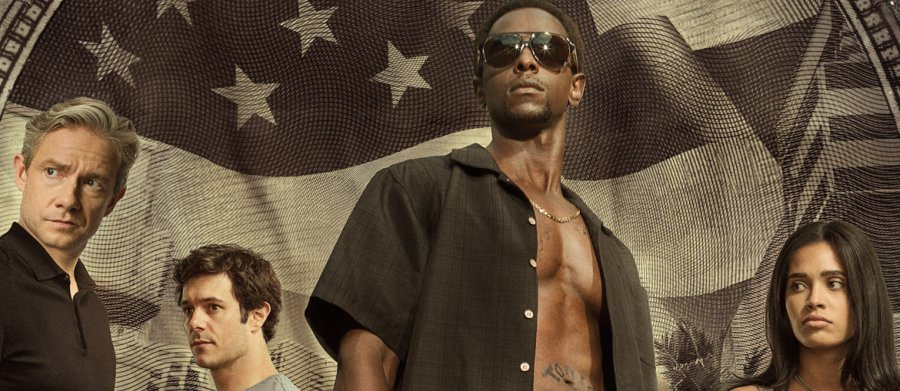
StartUp
2016 - United StatesReview: John Winterson Richards
Money is an illusion. Accept this and you will appreciate StartUp. Early human civilisation developed through barter: two parties exchange what they have directly for what they want. This is a great system, except what if one party does not happen to have what the other wants? So the notion of a medium of exchange developed, a commodity that everyone is assumed to want. At first, they tended to be useful commodities that people really did want, like fixed measures of common agricultural products, but the fact that they had intrinsic value, and could be consumed, meant exchange rates fluctuated. So less useful but durable commodities, such as gold and silver, began to be used. Then the State took a hand when Kings began to stamp fixed weights of gold and silver with their seals, and currency was born.

Currency is a confidence trick. People assumed their gold and silver coins could be converted at will into whatever goods and services they might desire. Of course, there was no guarantee of that, but everyone made the same assumption, so trade flourished. Gold and silver are heavy, so they began to be replaced in everyday use by the banknote, a promise to pay in gold and silver on demand. This promise is now a lie, but everyone still chooses to proceed on the assumption that it is true. Rather than move lots of banknotes, large sums were transferred between banks by documents such as cheques. These are now being replaced in turn by electronic transfer. Most banks do not have vaults filled with cash any more, just figures on computer screens. These back "securities," which in turn back "derivatives."
Note that at every stage, we get one step further away from actual goods and services. The final stage is "cryptocurrency," an asset that exists entirely on computer screens, totally divorced from the State-backed system of "fiat currencies."

Now one would think no one in their right mind would touch such a worthless asset with a bargepole. It has absolutely no value except what someone else is willing to pay for it. Yet we are so used to worthless assets divorced from real value that it turns out that means quite a lot of people. Some have legal - or illegal - reasons for avoiding the State-backed system. Others are speculators. Between early 2016 and late 2019, there was a cryptocurrencies boom and - more predictably - bust that saw their total global trading value rise from $7,000,000,000 to over $800,000,000,000 before setting back under $300,000,000,000. Yes, that really happened.

It was over the same period that 'StartUp' was produced and first broadcast, when it looked like cryptocurrencies were the cool new way to make easy millions. Our heroine, a brilliant but erratic Cubana programmer named Izzy Morales (Otmara Marrero), comes up with a cryptocurrency which solves many of the technical problems that undermine the whole system. She impresses a young venture capitalist, Nick Talman (Adam Brody), who leaves his high flying job to go into partnership with her on his own account.

However, he makes the huge mistake of using as the seed capital for the new enterprise some money left with him by his dodgy father, who had in turn embezzled it from, among others, a vicious Haitian street gang. Nick soon receives a terrifying visit from a tough Haitian enforcer, Ronald Dacey, played by Edi Gathegi - who seems to play a lot of Haitians for a man born in Kenya: he also played "The Haitian" in Justified, which is just one of many things 'StartUp' has in common with the works of Elmore Leonard, whose style and tone permeate the whole project.

Ronald is by far the most interesting of the three principals. Beneath the hardened streetfighter is a true man of vision. He fears for the future of his small immigrant community and wants a better life for his own children. He sees in Nick and his business plan the key to a better world.
He muscles his way into the deal, but soon proves he brings more to the table than his ability to intimidate. He understands people better than Izzy or Nick. He knows how to hustle. He has presence. He begins to believe that what he has learned on the streets gives him an advantage in the softer environment of mainstream business. Then, just as we are beginning to think we are in a traditional "fish out of water" story like Elmore Leonard's 'Get Shorty,' in which the poor outsider's acumen makes him a success among his supposed social superiors, Ronald comes to realise that big business can be even dirtier than gang warfare.
He learns that people who appear to like and respect him do not really want him sitting at their table. Indeed, there is sometimes a wonderful dichotomy about the character. He seems genuinely eager to fit in with his new friends and his new business environment, but there are moments when we see the frightening old Ronald has not gone away.
He becomes something of a tragic hero. He gets his place at the table but at the price of the reason he wanted it in the first place. Izzy and Nick also lose what they cherish on the road to what they want. It is a classic morality tale.
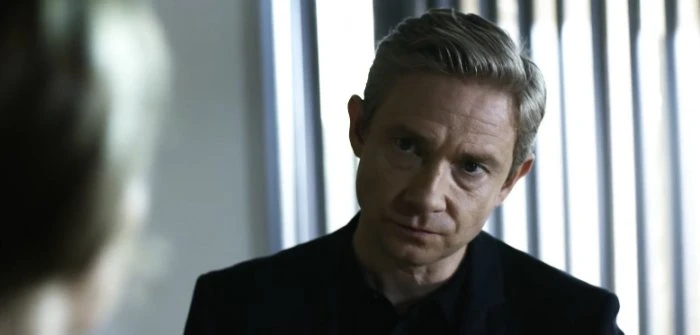
The thoroughly amoral character arc of Phil Rask seems like an antidote to that. A corrupt FBI Agent, he is played against type by Martin Freeman from 'The Hobbit' and Sherlock. He sees an opportunity for blackmail in the new enterprise. Yet he is far from the usual all-powerful voice of authority we encounter in such things. His career is on the edge. He is one of those intrusive, disruptive characters, also found in Elmore Leonard, whose only talent, if that is the word, is the ability to thrust themselves into situations where they are not wanted and remain there.
This is not enough to stop his descent into a personal Hell of his own making. This is well deserved, and it is therefore a great tribute to Freeman that we might feel moments of pity as things get progressively worse for this unpleasant man who has done very unpleasant things. The quirky conclusion to his participation is true to the character and strangely satisfying.
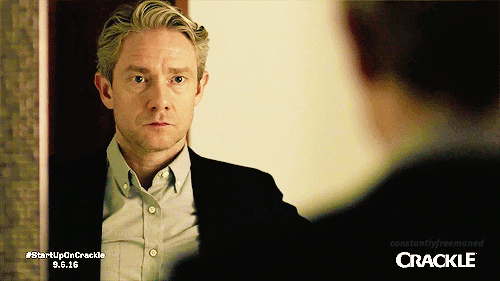
Around the same time another familiar face enters the story to carry our trio forward. This is the always intriguing Ron Perlman, from 'Hellboy' and Sons of Anarchy, as the self-made but slightly shady millionaire Wes Chandler, a man with his own island who eventually decides to back their latest idea and becomes in effect their mentor. Their operation becomes far more professional as a result, but, of course, he is a man with secrets of his own.
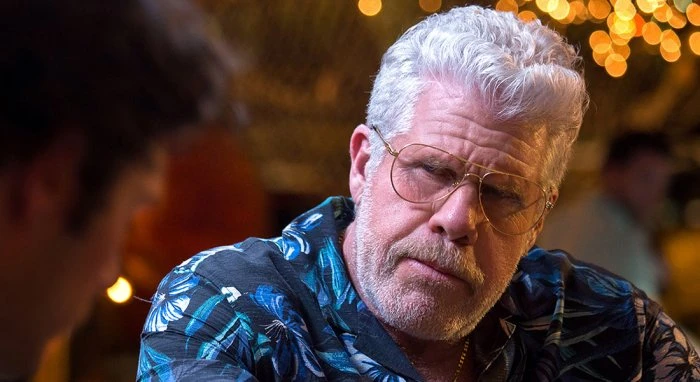
Like his character, Perlman injects the whole project with much needed authority. He is perfectly cast as the experienced and self-confident silverback male who has nothing to prove because he knows he is in charge. Anyone who has had dealings with similar entrepreneurs will recognise the type. They never turn out to be quite as in control as they like to pretend or think.
This is brought home in the third season when, just as things are beginning to get off the ground, the US Government turns up in the form of Mira Sorvino as NSA Agent Rebecca Stroud. The NSA is never good news in these sorts of shows, and 'StartUp' seems to share the libertarian attitudes of many tech-entrepreneurs to Government in general. Yet Stroud's involvement does pose an important moral question which has been ignored up to this point: how do our heroes reconcile their need to maintain the absolute integrity of their new system with the knowledge that it will certainly be used by some bad people, including actual terrorists, to serve their evil purposes?

In the end, Stroud resolves the practical dilemma herself by being such a bully that everyone is soon an anti-Government libertarian again, but the question of principle remains in the air.
A strong supporting cast includes Tony Plana from 'Mayans MC' as Izzy's father, Wayne Knight from 3rd Rock From the Sun as a tech-investor, and Tyler Labine from 'Reaper' and Zachary Knighton from 'FlashForward' as a pair of totally fictional brothers who happen to be major players in technology.
The best thing about 'StartUp' is how it links all levels of American society and business, from "respectable" high finance to the poor neighbourhoods where immigrants scratch a living that is not far above subsistence level, with various more or less respectable entrepreneurs in between - and suggests they all have more in common than they might imagine.
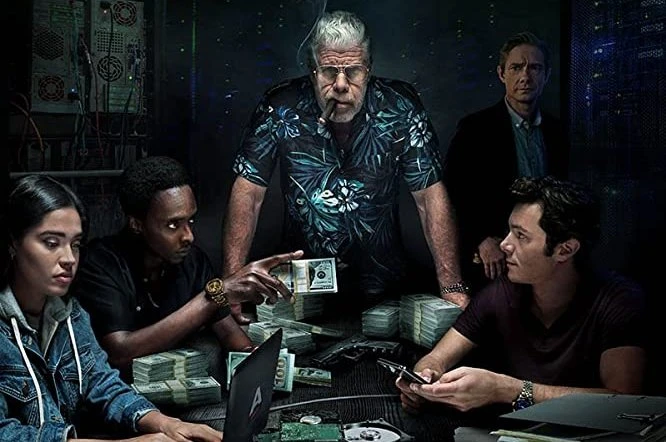
This is also its weakness. Sometimes credibility is strained too much. The factor that influences venture capitalists most in deciding whether to invest in a company is the experience of the management team, so it is unlikely that any major investor would not notice that a Joint Managing Director's entire curriculum vitae consisted in effect of the word "Gangster."
Most of the time that did not matter, because 'StartUp' was fast paced and exciting, with enough balls in the air to keep the viewer's mind off the holes in the plot. Our protagonists jumped from one apparently impossible position to another with enough speed to keep up the momentum.
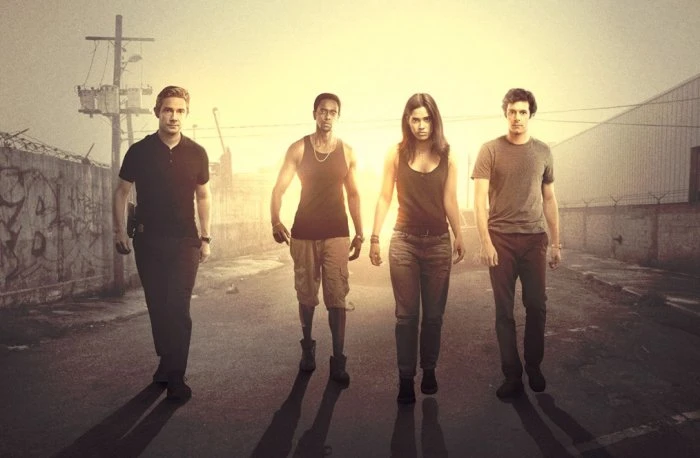
The third season ended with a particularly strong cliff hanger - which seems destined never to be resolved. As is so often the case these days, there has, at the time of writing, been no official cancellation, but it is now two years since that last episode was first broadcast and there is no sign of a fourth season being produced. Perlman in particular looks very busy, so that looks like it for one of the best technology thrillers of our time.
Seen this show? How do you rate it?
Seen this show? How do you rate it?
Published on September 25th, 2020. Written by John Winterson Richards for Television Heaven.



